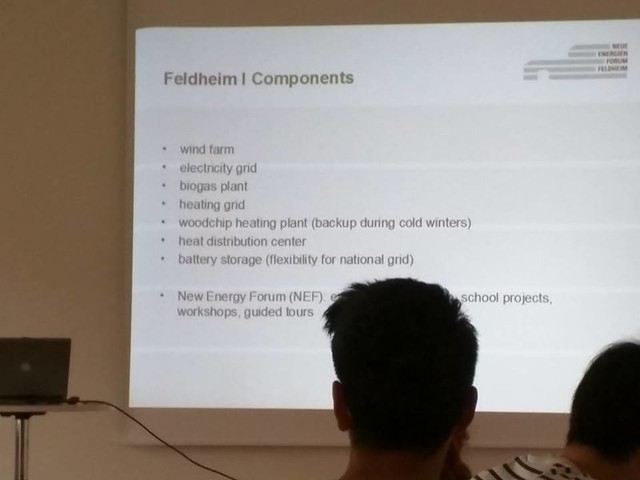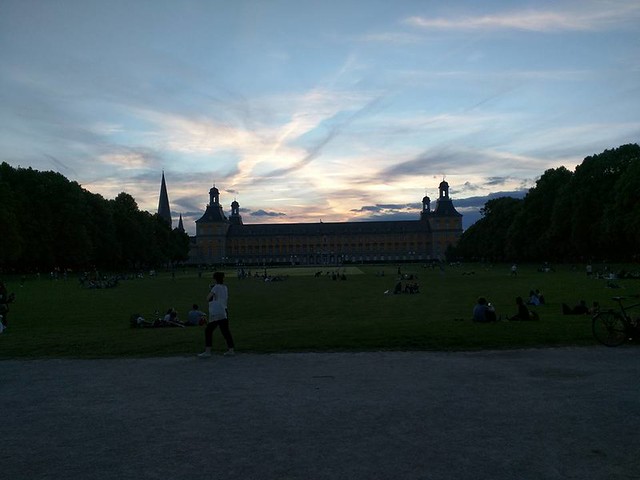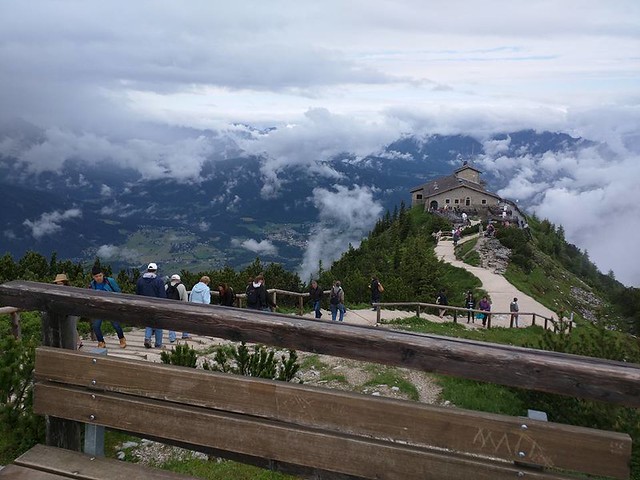Study abroad lessons in Germany
By Thomas H.
Aug. 30, 2016
Studying abroad is a hallmark of the four-year college experience. It offers many students the opportunity to fully stretch their wings and travel for the first time. There are countless benefits to studying abroad and most come outside the classroom. One usually learns more about themselves in addition to various subjects and the different perspectives and sources of the host country. Culture plays an intrinsic role in shaping those perspectives and beliefs of the given culture and region. In direct correlation with this is what is taught and practiced in the region. As a result, a person can learn much by capitalizing on such an opportunity.
One such opportunity to study abroad is the Universität Bonn: Renewable energy summer program in Germany. This program offers both an emphasis in German culture and the German Energiewende, which is translated as “energy transitions.” The course was a single six-hour course that met in a combination of all day coursework or all day excursions, or a combination of the two. The excursions were to various local or regional corporations or site visits centered around renewable energies.

For example, the class attended the national research campus in Julich and the renewable energies park in Morbach. The course also invited guest lecturers from multiple backgrounds to speak on specific topics that were sub-concepts of renewable energies. A few of the guest lecturers were also the tour guides of their respective facilities and really enjoyed showing us around, which was cool to see.
With that being said, the other excursions were very cool and were to introduce the class to German culture and history. We visited the National History Museum in Bonn and the Reichstag in Berlin, and also had tours of both cities. We were also given German buddies who served as mentors and peers to help use learn and adjust. I, personally, felt right at home in Germany, which helped ease my transition.
The experiences I had ranged from personal to the typical student’s take on studying abroad. What I mean by personal is that I’m part German, and also had historical family ties to the country. This connection helped me to be very engaged during my adventure across the pond, and inspired me to learn as much as possible about German culture and history. Getting to see the the Siegessaule, Reichstag and Brandenburg Gate was incredible. I also got to visit sites in Bonn such as the UN campus and the Drachenfels, which was on a small mountain overlooking the Rhein River valley.
During the tours, we were told significance and history behind what we were seeing, as well as some folk tales related to them on occasion. I also had the unexpected pleasure of having my dad take me to the Czech Republic, Austria and Germany before my program, and saw much, much more. From the Bavarian Alps to Prague, every place was historical, beautiful and very memorable.

With each of these memories, I was better at putting things into perspective in terms of myself and the world around me. As a direct result of this trip, I’ve learned more about the world. More importantly, I learned about myself. In fact, five lessons really stand out as ones that others can benefit from. These are: 1) Study the area you will be studying in, 2) Try new things while abroad, 3) Explore, 4) Balance is key to success on all levels and 5) Be open minded in situations where you may feel uncomfortable.
Studying before you go is invaluable to having a life-changing experience. If one learns about the culture, language or history, it will help them to appreciate and experience the place genuinely. Personally, it made me have a much richer experience and helped things make sense while I was there.
The second lesson is to always try new things. Regardless of the differences and similarities of the home vs. foreign culture, one must challenge themselves. By trying new things, an individual adapts to their new surroundings and are also expanding their comfort zone. This is key for growth and is a crux stone of the study abroad experience and helps an individual truly learn about the world.
Thirdly, and this lesson builds off the last one, but an individual must explore. There will come a time when they are tired and culture shock is setting in and home is on the mind. When this occurs, one must always fight the urge to return to their dorm and must keep finding reasons, without sacrificing sleep or studying, to go out and see more of the world. Only then will opportunities show themselves and one can never know what will happen next. It is crucial to maximize the experiences and opportunities presented during an individual’s time abroad.
A fourth takeaway is to balance responsibility and fun in a healthy and effective manner. Studying abroad is exciting and new. However, it is important to remember that one has responsibilities while traveling and that they are there for a reason. While abroad, one must create a well-balanced schedule involving exploration and academic learning. I definitely had my fun, yet at the same time, I studied hard and have received a 1.0 on all of my graded assignments (which is the German equivalent of a 4.0 in the U.S.).
The fifth and final lesson is to always keep an open mind. Different cultures can have two different definitions of the same thing. Despite any ideological or political differences, one should always strive to be open minded. Being closed minded impedes personal growth while traveling. It can also hinder the experience itself as it rearranges the set of opportunities that will arise for an individual. Being open minded, on the other hand, can make the experience truly dynamic and meaningful later in life.

These lessons helped me to maximize my time in central and northern Europe. From learning the Germanic folklore and language to interacting with people, I had a truly life-altering experience. I fulfilled some personal/familial milestones and it’s all due to me adhering to my aforementioned lessons and wanting the best experience possible. If one has a connection to the region to which they are traveling, it will make them motivated to learn, grow and cherish the time studying abroad.
When a person arrives, they must strive for open mindedness, balance their time and learn as much as they can. As the trip progresses, they need to maintain this and not let fatigue affect the trip. This will maximize the impact on the life of the individual and empower them to bring the things they’ve learned back to Columbia. I know I sure will bring back the lessons and memories I had back with me.
About the blogger
Thomas H. is studying abroad on the Universität Bonn: Renewable energy summer program in Germany.